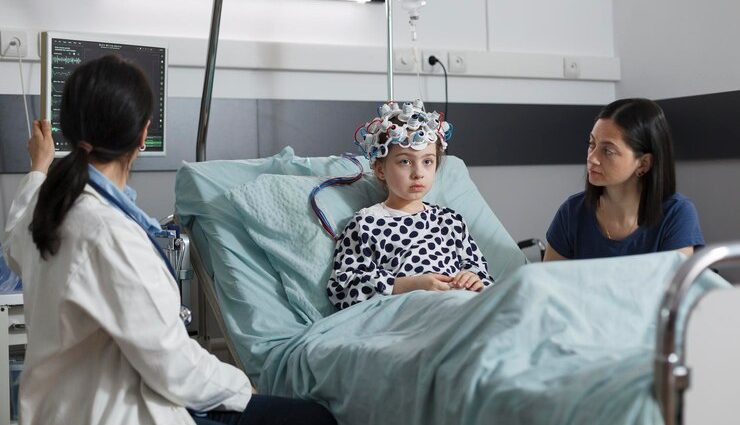Cancer treatments are still very aggressive today. Although in a large number of cases the disease is overcome, there are undoubtedly important after-effects that are not always discussed. Some of these are cognitive impairment, poor concentration, or memory loss. These are side effects associated with what is known as chemobrain.
For years, clinical documentation and studies on this phenomenon have been revealing a reality that is not so well known to most people. When a person survives cancer, they have to face a new battle in which they have to deal with a wide range of complex consequences, both physical and psychological.
Chemo brain is a mental fog, a veil that hinders the simplest cognitive processes such as evoking words, concentration, spatial orientation…
However, to these well-known dimensions such as exhaustion, low defenses, digestive problems, weakness, infections, bone loss, feeling cold, etc., another one is added. We are talking about brain deterioration, specifically those cognitive processes such as attention, problem solving, working memory, etc.
Chemo brain, the mental fog that results from chemotherapy
We often define cancer as a battle. However, for many, it is a real test of endurance and it is not just about following that treatment based on chemotherapy. Cancer involves surgical interventions, those that often combine different treatments such as pharmacological ones, radiotherapy, immunotherapy…
Thus, although oncology professionals often suggest to patients that each person experiences and reacts to treatments in a particular way, there are always the same effects that end up converging. Chemobrain is one of them. It is a reality as exhausting as the physical after-effects can be and that, often, many patients are associated with the stress or anxiety of the disease itself.
However, as clinical studies show, chemobrain is a direct consequence of the treatment itself, an effect experienced by around 80% of patients. Let’s look at more specific data below.
Living with chemo brain: effects and characteristics
- Research reveals that the cognitive domains most often affected by chemotherapy are visual and verbal memory, attention, and psychomotor functioning.
- We know that each type of cancer receives a specific treatment. There are longer treatments and others of lesser intensity, always adjusted to the particularities of each patient. Well, it has been proven that practically all patients who have undergone chemotherapy experience this cognitive deterioration. However, and as expected, longer and more intense treatments leave greater after-effects. The effect is cumulative.
- Patients experience on average problems remembering dates, pending appointments, problems remembering common words, and finishing a sentence…
- It is also common for them to have problems performing several tasks at once: talking on the phone and pouring a glass of water or finding their way while walking … All of these are activities that they perform with great difficulty (and frustration) after chemotherapy.
- They also perceive themselves as more disorganized and slow to react… After chemo, the world becomes more complex and they become more “subdued” when it comes to being able to react to things that were once so common and familiar.
Chemo brain: treatments and strategies to reverse its effects
We said it at the beginning. Surviving cancer is an achievement, it is happiness and it is hope. However, after that stage a new one opens, aimed at reinterpreting ourselves. One where self-care is more important than ever, one where we must look for those clinical, natural, psychological, and even spiritual approaches that can help us most to reverse the psychological and emotional effects of the disease and the treatment itself.
Keys to optimizing brain function after chemotherapy treatment
The answer to whether it is possible to reverse the effects of chemo on the brain is simple: it is possible. However, this cognitive rehabilitation requires time, effort, and a multidisciplinary approach.
- Currently, various drugs are being tested to reverse the neurological effects of chemo. However, to date, this key component, this 100% effective drug, does not yet exist on the market.
- For example, herbal therapies based on ginseng and ginkgo biloba are known to have positive effects.
- It is also recommended that these patients organize their cognitive rehabilitation. Today we have many apps and programmes on our mobile phones and computers aimed at exercising our memory and concentration. All of them are very useful.
- It is also advisable to use diaries to structure time and activities. It is recommended that the patient understand that it is always better to do things in a sequenced manner and little by little rather than to end up multitasking. The accumulation of activities intensifies anxiety and low self-efficacy.
- On the other hand, and no less important, adequate family and social support is also needed. The environment must be close and understanding, and above all, aware of the effects associated with the chemo brain.
In conclusion, the most advisable, logical, and expected thing is that each patient could have access to adequate cognitive rehabilitation specialized in this clinical condition. However, as treatments advance, so will oncological rehabilitation therapy itself, that aimed at guaranteeing the quality of life of those who have overcome cancer. Let us hope so.
